Supporting Our Members: Aegis the Union’s Commitment to the Grievance Process
At Aegis the Union, our dedication to our members is at the heart of everything we do. One of the crucial ways we support our members is through the grievance process, ensuring fair treatment, resolution of issues, and a supportive environment for all. Whether addressing concerns individually or collectively, we stand by our members every step of the way. Here’s a closer look at how we facilitate and support the grievance process.
Understanding the Grievance Process
The grievance process is a formal procedure that allows employees to raise concerns about their work environment, relationships with colleagues, or decisions made by their employer. This process is vital in maintaining a fair and just workplace, providing a structured way to address and resolve issues.
Individual Support: Personalised Assistance Every Step of the Way
- Initial Consultation: When a member first raises a grievance, we provide a confidential consultation to understand the issue at hand. This involves listening to the member’s concerns, clarifying the facts, and advising on the appropriate steps to take.
- Advice and Guidance: Our experienced representatives offer advice, helping members understand their rights and the grievance procedure. This includes outlining the possible outcomes and setting realistic expectations. We will then advice if the issue raised by our member can be resolved informally, or if necessary, formally through the employer’s Grievance process.
- Preparation of Documentation: We assist members in preparing all necessary documentation, ensuring that their grievance is clearly articulated and supported by relevant evidence. This preparation is crucial for presenting a strong case.
- Representation: During grievance meetings or hearings, our representatives accompany members, providing moral support and expert representation. We advocate on their behalf, ensuring their voice is heard and their concerns are taken seriously.
- Follow-Up: After the grievance process concludes, we continue to support our members by following up on the outcome. If the resolution is unsatisfactory, we explore further options, including appeals or external mediation.
Collective Support: Strength in Unity
- Identifying Collective Issues: Sometimes, grievances affect multiple employees. In such cases, we identify the collective nature of the issue and organise group meetings to discuss the common concerns.
- Group Representation: We facilitate the formation of a collective grievance, ensuring that the group’s concerns are presented cohesively and powerfully. Our representatives coordinate with the group to gather evidence and prepare a unified case.
- Negotiation with Employers: On behalf of the collective group, we negotiate with employers to seek a fair resolution. This involves strategic discussions, highlighting the collective strength of our members.
- Mediation and Arbitration: If necessary, we arrange for mediation or arbitration to resolve collective grievances.
Regardless of the nature of each case, our goal is to achieve a fair and amicable solution that benefits all affected members.
How the Grievance Process Works
- Resolving Informally: As a union we would look at each individual situation a member raises with us to see if the issue/concern could be resolved informally to prevent the individual having to go through the formal process. The Aegis rep will support a member through this by taking part in an informal meditation process or liaising with all parties involved, to resolve amicably considering the formal route of the process.
- Raising a Grievance: The process begins when a member formally raises a grievance with their employer. This is typically done in writing, outlining the nature of the complaint and the desired outcome.
- Acknowledgment and Investigation: The employer acknowledges receipt of the grievance and conducts a formal investigation. This may involve interviewing witnesses, reviewing documents, and gathering facts.
- Grievance Meeting: A grievance meeting is scheduled where the member (and their Aegis representative) presents their case. The employer provides an opportunity to discuss the grievance in detail and seek clarification.
- Decision and Outcome: After the meeting, the employer decides and communicates the outcome in writing (a formal meeting can be held too) This includes any actions to be taken to resolve the grievance.
- Appeal Process: If the member is not satisfied with the outcome, they have the right to appeal. The appeal process involves a review of the original decision by a higher authority within the organisation.
At Aegis the Union, we understand that the grievance process can be daunting and emotionally challenging. That’s why we are committed to providing unwavering support, ensuring that our members feel empowered, respected, and heard.
Our comprehensive approach to individual and collective grievances is part of our commitment to ensuring a fair and just workplace for all.
For more information or to seek assistance with a grievance, please contact one of your local reps.


